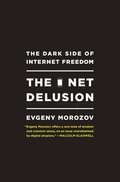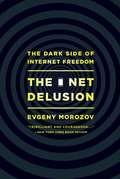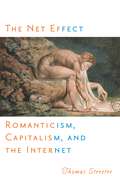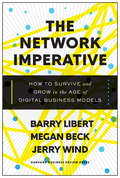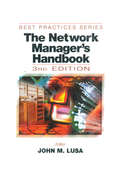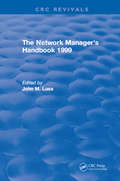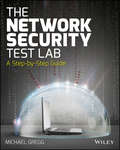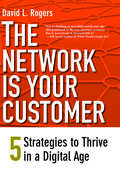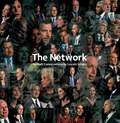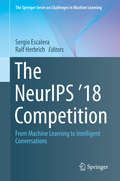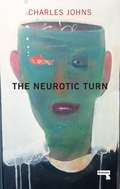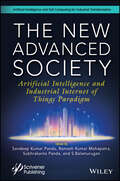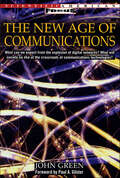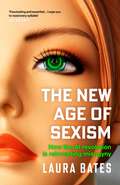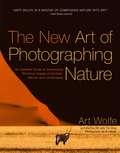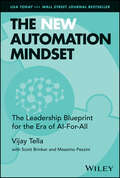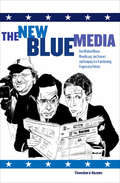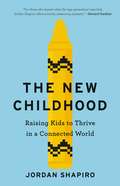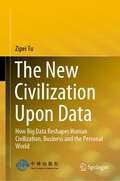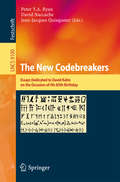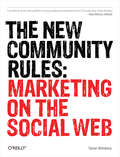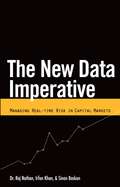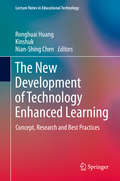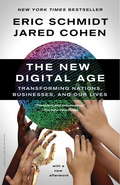- Table View
- List View
The Net Delusion
by Evgeny Morozov"The revolution will be Twittered!" declared journalist Andrew Sullivan after protests erupted in Iran in June 2009. Yet for all the talk about the democratizing power of the Internet, regimes in Iran and China are as stable and repressive as ever. In fact, authoritarian governments are effectively using the Internet to suppress free speech, hone their surveillance techniques, disseminate cutting-edge propaganda, and pacify their populations with digital entertainment. Could the recent Western obsession with promoting democracy by digital means backfire? In this spirited book, journalist and social commentator Evgeny Morozov shows that by falling for the supposedly democratizing nature of the Internet, Western do-gooders may have missed how it also entrenches dictators, threatens dissidents, and makes it harder--not easier--to promote democracy. Buzzwords like "21st-century statecraft" sound good in PowerPoint presentations, but the reality is that "digital diplomacy" requires just as much oversight and consideration as any other kind of diplomacy. Marshaling compelling evidence, Morozov shows why we must stop thinking of the Internet and social media as inherently liberating and why ambitious and seemingly noble initiatives like the promotion of "Internet freedom" might have disastrous implications for the future of democracy as a whole.
The Net Delusion
by Evgeny Morozov"The revolution will be Twittered!" declared journalist Andrew Sullivan after protests erupted in Iran in June 2009. Yet for all the talk about the democratizing power of the Internet, regimes in Iran and China are as stable and repressive as ever. In fact, authoritarian governments are effectively using the Internet to suppress free speech, hone their surveillance techniques, disseminate cutting-edge propaganda, and pacify their populations with digital entertainment. Could the recent Western obsession with promoting democracy by digital means backfire? In this spirited book, journalist and social commentator Evgeny Morozov shows that by falling for the supposedly democratizing nature of the Internet, Western do-gooders may have missed how it also entrenches dictators, threatens dissidents, and makes it harder--not easier--to promote democracy. Buzzwords like "21st-century statecraft" sound good in PowerPoint presentations, but the reality is that "digital diplomacy" requires just as much oversight and consideration as any other kind of diplomacy. Marshaling compelling evidence, Morozov shows why we must stop thinking of the Internet and social media as inherently liberating and why ambitious and seemingly noble initiatives like the promotion of "Internet freedom" might have disastrous implications for the future of democracy as a whole.
The Net Delusion: The Dark Side of Internet Freedom
by Evgeny MorozovEvgeny Morozov offers a rare note of wisdom and common sense, on an issue overwhelmed by digital utopians.
The Net Effect: Romanticism, Capitalism, and the Internet (Critical Cultural Communication #32)
by Thomas Streeter2012 Honorable Mention from the Association of Internet Researchers for their Annual Best Book Prize Outstanding Academic Title from 2011 by Choice MagazineThis book about America's romance with computer communication looks at the internet, not as harbinger of the future or the next big thing, but as an expression of the times. Streeter demonstrates that our ideas about what connected computers are for have been in constant flux since their invention. In the 1950s they were imagined as the means for fighting nuclear wars, in the 1960s as systems for bringing mathematical certainty to the messy complexity of social life, in the 1970s as countercultural playgrounds, in the 1980s as an icon for what's good about free markets, in the 1990s as a new frontier to be conquered and, by the late 1990s, as the transcendence of markets in an anarchist open source utopia.The Net Effect teases out how culture has influenced the construction of the internet and how the structure of the internet has played a role in cultures of social and political thought. It argues that the internet's real and imagined anarchic qualities are not a product of the technology alone, but of the historical peculiarities of how it emerged and was embraced. Finding several different traditions at work in the development of the internet—most uniquely, romanticism—Streeter demonstrates how the creation of technology is shot through with profoundly cultural forces—with the deep weight of the remembered past, and the pressures of shared passions made articulate.
The Network Imperative: How to Survive and Grow in the Age of Digital Business Models
by Barry Libert Jerry Wind Megan BeckDigital networks are changing all the rules of business. New, scalable, digitally networked business models, like those of Amazon, Google, Uber, and Airbnb, are affecting growth, scale, and profit potential for companies in every industry. But this seismic shift isn't unique to digital start-ups and tech superstars. Digital transformation is affecting every business sector, and as investor capital, top talent, and customers shift toward network-centric organizations, the performance gap between early and late adopters is widening.So the question isn't whether your organization needs to change, but when and how much.The Network Imperative is a call to action for managers and executives to embrace network-based business models. The benefits are indisputable: companies that leverage digital platforms to co-create and share value with networks of employees, customers, and suppliers are fast outpacing the market. These companies, or network orchestrators, grow faster, scale with lower marginal cost, and generate the highest revenue multipliers.Supported by research that covers fifteen hundred companies, authors Barry Libert, Megan Beck, and Jerry Wind guide leaders and investors through the ten principles that all organizations can use to grow and profit regardless of their industry. They also share a five-step process for pivoting an organization toward a more scalable and profitable business model.The Network Imperative, brimming with compelling case studies and actionable advice, provides managers with what they really need: new tools and frameworks to generate unprecedented value in a rapidly changing age.
The Network Manager's Handbook, Third Edition: 1999
by John M. LusaThe Network Manager's Handbook is a one-of-a-kind resource featuring critical network technology assessments and career development advice from some of the most highly respected consultants and network managers in the field. This answer-filled compendium provides a rich blend of precise knowledge and real-world experience, the result of many thousands of hours of actual hands-on work in the field. The book gives you proven, successful, economical solutions to real-world problems associated with the host of new network technologies.
The Network Manager's Handbook: 1999 (Auerbach Best Practices In It Ser.)
by John LusaThis essential handbook for the data communications/network manager and planner covers a variety of data communication and IS topics. The Network Manager's Handbook addresses technical issues associated with local and wide area networking, purchasing communications services, supporting the network's users, understanding the telecommunications regulatory environment, personnel issues, and more.
The Network Security Test Lab
by Michael GreggThe ultimate hands-on guide to IT security and proactive defense The Network Security Test Lab is a hands-on, step-by-step guide to ultimate IT security implementation. Covering the full complement of malware, viruses, and other attack technologies, this essential guide walks you through the security assessment and penetration testing process, and provides the set-up guidance you need to build your own security-testing lab. You'll look inside the actual attacks to decode their methods, and learn how to run attacks in an isolated sandbox to better understand how attackers target systems, and how to build the defenses that stop them. You'll be introduced to tools like Wireshark, Networkminer, Nmap, Metasploit, and more as you discover techniques for defending against network attacks, social networking bugs, malware, and the most prevalent malicious traffic. You also get access to open source tools, demo software, and a bootable version of Linux to facilitate hands-on learning and help you implement your new skills. Security technology continues to evolve, and yet not a week goes by without news of a new security breach or a new exploit being released. The Network Security Test Lab is the ultimate guide when you are on the front lines of defense, providing the most up-to-date methods of thwarting would-be attackers. Get acquainted with your hardware, gear, and test platform Learn how attackers penetrate existing security systems Detect malicious activity and build effective defenses Investigate and analyze attacks to inform defense strategy The Network Security Test Lab is your complete, essential guide.
The Network is Your Customer: Five Strategies to Thrive in a Digital Age
by David L. Rogers"An incredibly useful and valuable guidebook to the new consumer economy. Buy it. Learn from it. Succeed with it. "--Jeff Jarvis, author ofWhat Would Google Do "This is the stuff that every business and nonprofit needs to embrace if they're going to succeed in a changing world. "--Vivian Schiller, CEO of NPR With clear analysis and practical frameworks, this book provides a strategic guide that any business or nonprofit can use to succeed in the digital age. Marketing expert David Rogers examines how digital technologies--from smartphones to social networks--connect us in frameworks that transform our relationships to business and each other. To thrive today, organizations need new strategies--strategies designed for customer networks. Rogers offers five strategies that any business can use to create new value: ACCESS--be faster, be easier, be everywhere, be always on ENGAGE--become a source of valued content CUSTOMIZE--make your offering adaptable to your customer's needs CONNECT--become a part of your customers' conversations COLLABORATE--involve your customers at every stage of your enterprise Rogers explains these five strategies with over 100 cases from every type and size of business--from shoes to news, and software to healthcare. InThe Network Is Your Customer, he shows: How Apple harnessed a host of collaborators to write apps for its iPhone How IBM designed a videogame to help sell its enterprise software How Ford Motors inspired an online community to build brand awareness for its new Fiesta . . . and countless other cases from consumer, b2b, and nonprofit categories. The book outlines a process for planning and implementing a customer network strategy to matchyourcustomers,yourbusiness, andyourobjectives--whether you need to drive sales, to enhance innovation, to reduce costs, to gain customer insight, or to build breakthrough products and services. Because today, whatever your goals and whatever your business, the network is your customer.
The Network: Portrait Conversations
by Lincoln SchatzAs the nation grapples with some of the greatest developments and challenges to date, The Network presents a dynamic portrait of the people who help shape America's current technology, policy, and education. Drawing inspiration from Richard Avedon's 1976 photographic portfolio, The Family, The Network consists of generative video portraits of 100 entrepreneurs, industrialists, politicians, scientists, scholars, inventors, and other influential figures, some of whom may be household names and others who operate behind the scenes, who play pivotal roles shaping the history and daily workings of America. The project builds on aspects of portraitist Lincoln Schatz's earlier project, Esquire's Portrait of the 21st Century (National Portrait Gallery, Smithsonian Institution), taking a closer look at how the touchstones of America are created and preserved.
The NeurIPS '18 Competition: From Machine Learning to Intelligent Conversations (The Springer Series on Challenges in Machine Learning)
by Sergio Escalera Ralf HerbrichThis volume presents the results of the Neural Information Processing Systems Competition track at the 2018 NeurIPS conference. The competition follows the same format as the 2017 competition track for NIPS. Out of 21 submitted proposals, eight competition proposals were selected, spanning the area of Robotics, Health, Computer Vision, Natural Language Processing, Systems and Physics. Competitions have become an integral part of advancing state-of-the-art in artificial intelligence (AI). They exhibit one important difference to benchmarks: Competitions test a system end-to-end rather than evaluating only a single component; they assess the practicability of an algorithmic solution in addition to assessing feasibility.The eight run competitions aim at advancing the state of the art in deep reinforcement learning, adversarial learning, and auto machine learning, among others, including new applications for intelligent agents in gaming and conversational settings, energy physics, and prosthetics.
The Neurotic Turn
by Charles JohnsTaking their cue from the work of Charles Johns, who has argued that, far from being an ailment, neurosis is in fact the dominant condition of our society today, an array of thinkers have gathered in The Neurotic Turn to address the question: what can ‘neurosis’ tell us about our current social impasse?What emerges in The Neurotic Turn is the awareness that the medicalization of neurosis was merely provisional. Today, to understand our increasingly synthetic, digitized world, we cannot retreat from neurosis, or pretend to offer its cure. Instead, we must confront it — dispensing with the conventional idea of ‘reality’ in order to redefine it.
The New Advanced Society: Artificial Intelligence and Industrial Internet of Things Paradigm (Wiley-Scrivener)
by Sandeep Kumar Panda S. Balamurugan Ramesh Kumar Mohapatra Subhrakanta PandaTHE NEW ADVANCED SOCIETY Included in this book are the fundamentals of Society 5.0, artificial intelligence, and the industrial Internet of Things, featuring their working principles and application in different sectors. A 360-degree view of the different dimensions of the digital revolution is presented in this book, including the various industries transforming industrial manufacturing, the security and challenges ahead, and the far-reaching implications for society and the economy. The main objective of this edited book is to cover the impact that the new advanced society has on several platforms such as smart manufacturing systems, where artificial intelligence can be integrated with existing systems to make them smart, new business models and strategies, where anything and everything is possible through the internet and cloud, smart food chain systems, where food products can be delivered to any corner of the world at any time and in any situation, smart transport systems in which robots and self-driven cars are taking the lead, advances in security systems to assure people of their privacy and safety, and smart healthcare systems, where biochips can be incorporated into the human body to predict deadly diseases at early stages. Finally, it can be understood that the social reformation of Society 5.0 will lead to a society where every person leads an active and healthy life. Audience The targeted audience for this book includes research scholars and industry engineers in artificial intelligence and information technology, engineering students, cybersecurity experts, government research agencies and policymakers, business leaders, and entrepreneurs. Sandeep Kumar Panda, PhD is an associate professor in the Department of Data Science and Artificial Intelligence at IcfaiTech (Faculty of Science and Technology), ICFAI Foundation for Higher Education, Hyderabad. His research areas include artificial intelligence, IoT, blockchain technology, cloud computing, cryptography, computational intelligence, and software engineering. Ramesh Kumar Mohapatra, PhD is an assistant professor in the Department of Computer Science and Engineering, National Institute of Technology, Rourkela, Odisha, India. His research interests include optical character recognition, document image analysis, video processing, secure computing, and machine learning. Subhrakanta Panda, PhD is an assistant professor in the Department of Computer Science and Information Systems, BITS-PILANI, Hyderabad Campus, Jawahar Nagar, Hyderabad, India. His research interests include social network analysis, cloud computing, security testing, and blockchain. S. Balamurugan, PhD is the Director of Research and Development, Intelligent Research Consultancy Services (iRCS), Coimbatore, Tamilnadu, India. He is also Director of the Albert Einstein Engineering and Research Labs (AEER Labs), as well as Vice-Chairman, Renewable Energy Society of India (RESI), India. He has published 45 books, 200+ international journals/ conferences, and 35 patents.
The New Age of Communications
by John GreenIn The New Age of Communications, author John Green outlines how computers and the World Wide Web are revolutionizing our lives in the new global community. Originally published in 1997, Green covers the history of computers to how wired the world has become, to the nature of the Internet and the potential power of artificial intelligence.A Scientific American Focus book.
The New Age of Sexism: How the AI Revolution is Reinventing Misogyny
by Laura Bates&‘Laura Bates explains how they built the future – and forgot to put women in it&’ CAITLIN MORAN 'Fascinating and essential... I urge you to read every syllable' JO BRAND &‘All men must read this book if they have any interest in a truly just, fair and equal society&’ ROBIN INCEAI is here, bringing a seismic shift in the way our society operates. Might this mean a future reimagined on equitable terms for women and marginalised groups everywhere?Not unless we fight for it. At present, power remains largely in the hands of a few rich, white men. New AI-driven technologies, with misogyny baked into their design, are putting women in danger, their rights and safety sacrificed at the altar of profitability and reckless speed. In The New Age of Sexism, Sunday Times bestselling author and campaigner Laura Bates takes us deep into the heart of this rapidly evolving world. She explores the metaverse, confronts deepfake pornography, travels to cyber brothels, tests chatbots, and hears from schools in the grip of online sexual abuse, showing how our lives – from education to work, sex to entertainment – are being infiltrated by easily accessible technologies that are changing the way we live and love. What she finds is a wild west where existing forms of discrimination, inequality and harassment are being coded into the future we will all have little choice about living in – unless we seize this moment to demand change. Gripping, courageous and eye-opening, The New Age of Sexism exposes a phenomenon we can&’t afford to ignore any longer. Our future is on the line. We need to act now, before it is too late. &‘Urgent reading for anyone who is interested in the intersection of tech and gender equality, and indeed anyone who wants to be a part of building a better future, free from misogyny&’ EMMA-LOUISE BOYNTON &‘A brilliantly researched, incredibly illuminating and frequently chilling account of the next chapter in tech's ongoing assault on our core values. A chapter that is already unfolding around us all&’ JAMES O&’BRIEN
The New Art of Photographing Nature: An Updated Guide to Composing Stunning Images of Animals, Nature, and Landscapes
by Art Wolfe Martha HillA new spin on the classic guide to composing stunning images of nature and wildlife What is the difference between a good picture and a great one? In this fully revised edition of the classic bestseller The Art of Photographing Nature, master photographer Art Wolfe and former Audubon photo editor Martha Hill team up to explain the art of composing images of enduring beauty. Against a backdrop of more than 250 photographs of nature, wildlife, and landscapes, they share insights and advice about what works and what doesn't, and how small changes can take an image from ordinary to extraordinary. Throughout, all-new tips from digital imaging expert Tim Grey show readers how to make the most of digital technology, whether by choosing the right color space, understanding sensor size, or removing distracting elements in post-processing. The result is an invaluable collection of expert advice updated for the modern age.
The New Automation Mindset: The Leadership Blueprint for the Era of AI-For-All
by Scott Brinker Vijay Tella Massimo PezziniExplore the true potential and impact of business automation Digital transformation of the business landscape is well underway, and businesses are being reshaped faster than ever before. Agility and adaptability are now critical components of these business' survival. But building these traits requires a holistic approach with an unrelenting focus on automation. How does one go about developing that focus? In The New Automation Mindset: The Leadership Blueprint for the Era of AI-for-All, renowned entrepreneur and tech strategists Vijay Tella, Scott Brinker, and Massimo Pezzini deliver a guide to implementing automation in the real world, avoiding jargon and vague bromides in favor of concrete examples of the successful integration of automated technologies and descriptions of the positive results they had on the companies that deployed them. In the book, you'll also find: Hands-on advice for C-suite executives, front-line managers, and everyday employees to implement effective automation frameworks Insightful explorations of the innovation and growth advantages of automation Deep treatments of how automation is about more than just RPA—or Robotic Process Automation—and efficiency An inspiring and practical presentation of one of the most essential topics in business today, The New Automation Mindset will earn a place on the bookshelves of founders, entrepreneurs, managers, shareholders, tech enthusiasts, knowledge workers, and anyone else with an interest in digital transformation and commerce.
The New Blue Media: How Michael Moore, MoveOn.org, Jon Stewart and Company Are Transforming Progressive Politics
by Theodore HammA look at the journalists and satirists who&’ve helped transform the political landscape in the twenty-first century. The New Blue Media traces the rise during the Bush years of new media stars: the news-saturated satire of The Onion, The Daily Show, and The Colbert Report; the polemical assaults of Michael Moore and Air America; and the instant-messaging politics of MoveOn, Daily Kos, and the netroots. With the exception of Air America, all of these new media outlets have found commercial success—marking, says Hamm, a new era in liberal politics. Does this new media matter? In 2004, both Michael Moore and MoveOn became major players; more recently, the influence of the netroots has sparked upheaval and debate within the Democratic Party. The New Blue Media examines this phenomenon in depth, and the reshaping of both the style and the substance of progressivism.
The New Childhood: Raising Kids to Thrive in a Connected World
by Jordan ShapiroA provocative look at the new, digital landscape of childhood and how to navigate it.In The New Childhood, Jordan Shapiro provides a hopeful counterpoint to the fearful hand-wringing that has come to define our narrative around children and technology. Drawing on groundbreaking research in economics, psychology, philosophy, and education, The New Childhood shows how technology is guiding humanity toward a bright future in which our children will be able to create new, better models of global citizenship, connection, and community.Shapiro offers concrete, practical advice on how to parent and educate children effectively in a connected world, and provides tools and techniques for using technology to engage with kids and help them learn and grow. He compares this moment in time to other great technological revolutions in humanity's past and presents entertaining micro-histories of cultural fixtures: the sandbox, finger painting, the family dinner, and more. But most importantly, The New Childhood paints a timely, inspiring and positive picture of today's children, recognizing that they are poised to create a progressive, diverse, meaningful, and hyper-connected world that today's adults can only barely imagine.
The New Civilization Upon Data: How Big Data Reshapes Human Civilization, Business and the Personal World
by Zipei TuThis book focuses on the changes which big data brings to human's society and personal thinking models. The author uses the concept of “data civilization” to reveal that we have entered a brand-new era on civilization level, which could be found and understood from three levels: human data civilization, commercial data civilization, and personal data civilization. There is no doubt data civilization will inevitably make a profound influence on the subversion and reconstruction of human beings including business, society, and thinking models. The book presents a unique perspective to understand the world which is dominated by data more and more.
The New Codebreakers
by David Naccache Peter Y. A. Ryan Jean-Jacques QuisquaterThis Festschrift volume is published in honor of David Kahn and is the outcome of a Fest held in Luxembourg in 2010 on the occasion of David Kahn's 80th birthday. The title of this books leans on the title of a serious history of cryptology named "The Codebreakers", written by David Kahn and published in 1967. This book contains 35 talks dealing with cryptography as a whole. They are organized in topical section named: history; technology - past, present, future; efficient cryptographic implementations; treachery and perfidy; information security; cryptanalysis; side-channel attacks; randomness embedded system security; public-key cryptography; and models and protocols.
The New Community Rules: Marketing on the Social Web
by Tamar WeinbergBlogs, networking sites, and other examples of the social web provide businesses with a largely untapped marketing channel for products and services. But how do you take advantage of them? With The New Community Rules, you'll understand how social web technologies work, and learn the most practical and effective ways to reach people who frequent these sites. Written by an expert in social media and viral marketing, this book cuts through the hype and jargon to give you intelligent advice and strategies for positioning your business on the social web, with case studies that show how other companies have used this approach. The New Community Rules will help you:Explore blogging and microblogging, and find out how to use applications such as Twitter to create brand awarenessLearn the art of conversation marketing, and how social media thrives on honesty and transparencyManage and enhance your online reputation through the social webTap into the increasingly influential video and podcasting marketDiscover which tactics work -- and which don't -- by learning about what other marketers have triedMany consumers today use the Web as a voice. The New Community Rules demonstrates how you can join the conversation, contribute to the community, and bring people to your product or service.
The New Data Imperative
by Irfan Khan Sinan Baskan Raj NathanEffective capital and financial risk management now requires that information flows no longer be handled independently in business unit silos; they must be unified for use in front, middle and back offices and to aid compliance with internal controls and regulatory demands. Drawing on their individual and corporate experience at the leading edge of IT developments, three of Sybase's senior IT executives offer a lucid analysis of IT needs in the rapidly changing capital markets. They show how innovative IT capabilities and architectures can strengthen risk management and establish a foundation for new and sustained capital markets growth.
The New Development of Technology Enhanced Learning
by Kinshuk Ronghuai Huang Nian-Shing ChenThe book addresses the main issues concerned with the new development of learning processes, innovative pedagogical changes, the effects of new technologies on education, future learning content, which aims to gather the newest concepts, research and best practices on the frontiers of technology enhanced learning from the aspects of learning, pedagogies and technologies in learning in order to draw a picture of technology enhanced learning in the near future. Some issues like "e-learning . . . m-learning . . . u-learning - innovative approaches," "the Framework and Method for Understanding the New Generation Students," "Context-aware Mobile Role Playing Game for Learning," " Pedagogical issues in content creation and use: IT literacy through Spoken Tutorials," "Supporting collaborative knowledge construction and discourse in the classroom," "Digital Systems for Hierarchical Open Access to Education," " Using Annotated Patient Records to Teach Clinical Reasoning to Undergraduate Students of Medicine," " Utilizing Cognitive Skills Ontology for Designing Personalized Learning Environments" and "Using Interactive Mobile Technologies to Develop Operating Room Technologies Competency" are discussed in separate chapters.
The New Digital Age: Reshaping the Future of People, Nations and Business
by Eric Schmidt Jared CohenIn an unparalleled collaboration, two leading global thinkers in technology and foreign affairs give us their widely anticipated, transformational vision of the future: a world where everyone is connected--a world full of challenges and benefits that are ours to meet and to harness. Eric Schmidt is one of Silicon Valley's great leaders, having taken Google from a small startup to one of the world's most influential companies. Jared Cohen is the director of Google Ideas and a former adviser to secretaries of state Condoleezza Rice and Hillary Clinton. With their combined knowledge and experiences, the authors are uniquely positioned to take on some of the toughest questions about our future: Who will be more powerful in the future, the citizen or the state? Will technology make terrorism easier or harder to carry out? What is the relationship between privacy and security, and how much will we have to give up to be part of the new digital age? In this groundbreaking book, Schmidt and Cohen combine observation and insight to outline the promise and peril awaiting us in the coming decades. At once pragmatic and inspirational, this is a forward-thinking account of where our world is headed and what this means for people, states and businesses. With the confidence and clarity of visionaries, Schmidt and Cohen illustrate just how much we have to look forward to--and beware of--as the greatest information and technology revolution in human history continues to evolve. On individual, community and state levels, across every geographical and socioeconomic spectrum, they reveal the dramatic developments--good and bad--that will transform both our everyday lives and our understanding of self and society, as technology advances and our virtual identities become more and more fundamentally real. As Schmidt and Cohen's nuanced vision of the near future unfolds, an urban professional takes his driverless car to work, attends meetings via hologram and dispenses housekeeping robots by voice; a Congolese fisherwoman uses her smart phone to monitor market demand and coordinate sales (saving on costly refrigeration and preventing overfishing); the potential arises for "virtual statehood" and "Internet asylum" to liberate political dissidents and oppressed minorities, but also for tech-savvy autocracies (and perhaps democracies) to exploit their citizens' mobile devices for ever more ubiquitous surveillance. Along the way, we meet a cadre of international figures--including Julian Assange--who explain their own visions of our technology-saturated future. Inspiring, provocative and absorbing, The New Digital Age is a brilliant analysis of how our hyper-connected world will soon look, from two of our most prescient and informed public thinkers.
